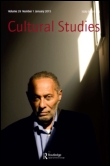Why Interculturalidad is not Interculturality

Colonial remains and paradoxes in translation between indigenous social movements and supranational bodies
- DOI: 10.1080/09502386.2014.899379
Robert Aman, Cultural Studies, Volume 29, Issue 2, 2015, pages 205-228
Abstract
Interculturality is a notion that has come to dominate the debate on cultural diversity among supranational bodies such as the European Union (EU) and the United Nations Educational, Scientific and Cultural Organization (UNESCO) in recent years. The EU goes so far as to identify interculturality as a key cultural and linguistic characteristic of a union which, it argues, acts as an inspiration to other parts of the world. At the same time, the very notion of interculturality is a core component of indigenous movements in the Andean region of Latin America in their struggles for decolonization. Every bit as contingent as any other concept, it is apparent that several translations of interculturality are simultaneously in play. Through interviews with students and teachers in a course on interculturality run by indigenous alliances, my aim in this essay is to study how the notion is translated in the sociopolitical context of the Andes. With reference points drawn from the works of Walter Mignolo and the concept of delinking, I will engage in a discussion about the potential for interculturality to break out of the prison-house of colonial vocabulary – modernization, progress and salvation – that lingers on in official memory. Engagement in such an interchange of experiences, memories and significations provides not only recognition of other forms of subjectivity, knowledge systems and visions of the future, but also a possible contribution to an understanding of how any attempt to invoke a universal reach for interculturality, as in the case of the EU and UNESCO, risks echoing the imperial order that the notion in another context attempts to overcome.
Keywords: interculturality, indigenous movements, delinking, modernity, coloniality, European Union
http://www.tandfonline.com/doi/abs/10.1080/09502386.2014.899379#.VK5nxsblelI